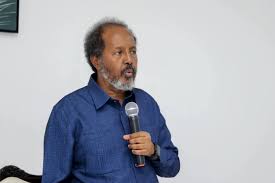
Uganda faces intolerably high levels of corruption: Experts
Institutions mandated to fight corruption are not effective, experts say
advertisements
Uganda continues to face intolerably high levels of corruption both within the public and private sector, Ugandan Ethics and Integrity Minister Simon Lokodo told Anadolu Agency on Tuesday.


"Corruption is discouraging local and foreign investment in the country,” the minister said, adding that anti-corruption measures are being enforced by the government.
But experts say that government efforts to stem corruption are insufficient.
Cissy Kagaba, executive director of the Anti- Corruption Coalition Uganda told Anadolu Agency on Tuesday that "Uganda has a culture of impunity.”
For Peter Wandera, country director for Transparency International, Uganda has "a culture that protects corruption. He told Anadolu Agency in an interview on Tuesday that much needed to be done.
Uganda was ranked 142 out of 200 in the 2014 Global Corruption Perception Index released by Transparency International, falling back two places from 2013.
Government takes action
When foreign investors come to Uganda, the minister said: "They hear that, before winning a contract, you must pay so much in bribery that they get discouraged and walk away. We have lost many potential investors for this reason.”
The minister said that officials in the department of investment were asking for 30 percent of the contract total. "These are the real enemies of the country, they extort money from investors, they were asking for 30 percent, can you imagine of the total sum of the contract,” the minister complained.
"This is undermining the rule of law, it impedes government authority and its efforts to maintain service delivery and to achieve its social and economic development goals,” the minister said.
Uganda is holding an "Anti-corruption Week,” before the International Anti- Corruption Day on Dec. 9. The theme for the week will be: "Stop collusion and corruption for better service delivery.”
Minister Lokodo explained that the theme is based on the increasing corruption cases as a result of high level collusion among ministries, departments, agencies and local government. "This is a very painful fact, unfortunately corruption is not a single man’s job, it’s a syndicate,” he said.
Uganda uncovered one of the worst corruption cases in its history in 2012. A total of UGX 214 billion ($63.98 million) of donor aid was lost to a high-level ‘syndicate’ [group of corrupt officials] at the Ministry of Public service and the Office of the Prime Minister.
After the scandal, several donor countries reduced $300 million in aid to Uganda and demanded that the government pay back lost funds. Currently there is an ongoing probe by a commission of inquiry into the Uganda National Roads Authority where losses to corruption are reportedly at the level of millions of dollars.
The minister said that, since then, the government has put in place stringent laws and enforced anti- corruption practices to put an end to the losses.
"The conviction rate has risen to 80 percent and through asset recovery we have recovered billions of shillings from persons who have diverted or stolen public funds,” the minister said.
Experts blame ‘selective implementation’
Kagaba says: "The same government is practicing selective implementation and enforcement of the law which has bred the culture of impunity.” There is insufficient action by the independent government arms such as the Inspectorate of Government, the Directorate of Public prosecutions and the Financial Intelligence Authority.
"All we see are show off appearances in court, we have not seen any logical conclusion of these cases and which people are actually being arrested, and many are out on bail.”
In May 2015, the Anti- Corruption Court Magistrate threw out a pension scam case on grounds that the State had, in the last two years, failed to bring even a single witness to testify against the nine suspects.
Kagaba argued that the only reason the government is failing to attack corruption is because of the involvement of high profile officials who will protect the lower level officials so as not to be named themselves. "So we are seeing them use the same laws to fight the fight against corruption,” she insisted.
Wandera pointed out that the 14 agencies in place to fight corruption are ineffective.
"The institutions charged with implementing these processes face many challenges such as understaffing, skills gaps and underfunding. Worst of all, they are riddled with internal corruption.”
He added that, because of failure to effectively enforce laws, the course of justice is often derailed. "Corrupt suspects have come to learn how the system works, and that, when they are arrested, they can be bailed out ahead of trial, and leave the country.”
Wandera also blamed Ugandan social attitudes which, he said, glorify corrupt officials who are considered successful.
He is however hopeful that things will change since the passage of the amendment to the Anti-Corruption Act, 2013 in August this year.
The law sentences a person convicted of corruption to a term of 14 years imprisonment. The new law also provides for confiscation of property located outside Uganda or beyond the jurisdiction of the courts in Uganda.
Lokodo acknowledged that, despite the various institutions existing to fight corruption, more is needed.
"We are on the way to strengthening our institutions so that no one escapes. But, until we are fully established, we shall see corruption lingering, and more accused of it will go scot free. It’s not enough to put the laws in place but it’s very important to enforce them,” he said.


"Corruption is discouraging local and foreign investment in the country,” the minister said, adding that anti-corruption measures are being enforced by the government.
But experts say that government efforts to stem corruption are insufficient.
Cissy Kagaba, executive director of the Anti- Corruption Coalition Uganda told Anadolu Agency on Tuesday that "Uganda has a culture of impunity.”
For Peter Wandera, country director for Transparency International, Uganda has "a culture that protects corruption. He told Anadolu Agency in an interview on Tuesday that much needed to be done.
Uganda was ranked 142 out of 200 in the 2014 Global Corruption Perception Index released by Transparency International, falling back two places from 2013.
Government takes action
When foreign investors come to Uganda, the minister said: "They hear that, before winning a contract, you must pay so much in bribery that they get discouraged and walk away. We have lost many potential investors for this reason.”
The minister said that officials in the department of investment were asking for 30 percent of the contract total. "These are the real enemies of the country, they extort money from investors, they were asking for 30 percent, can you imagine of the total sum of the contract,” the minister complained.
"This is undermining the rule of law, it impedes government authority and its efforts to maintain service delivery and to achieve its social and economic development goals,” the minister said.
Uganda is holding an "Anti-corruption Week,” before the International Anti- Corruption Day on Dec. 9. The theme for the week will be: "Stop collusion and corruption for better service delivery.”
Minister Lokodo explained that the theme is based on the increasing corruption cases as a result of high level collusion among ministries, departments, agencies and local government. "This is a very painful fact, unfortunately corruption is not a single man’s job, it’s a syndicate,” he said.
Uganda uncovered one of the worst corruption cases in its history in 2012. A total of UGX 214 billion ($63.98 million) of donor aid was lost to a high-level ‘syndicate’ [group of corrupt officials] at the Ministry of Public service and the Office of the Prime Minister.
After the scandal, several donor countries reduced $300 million in aid to Uganda and demanded that the government pay back lost funds. Currently there is an ongoing probe by a commission of inquiry into the Uganda National Roads Authority where losses to corruption are reportedly at the level of millions of dollars.
The minister said that, since then, the government has put in place stringent laws and enforced anti- corruption practices to put an end to the losses.
"The conviction rate has risen to 80 percent and through asset recovery we have recovered billions of shillings from persons who have diverted or stolen public funds,” the minister said.
Experts blame ‘selective implementation’
Kagaba says: "The same government is practicing selective implementation and enforcement of the law which has bred the culture of impunity.” There is insufficient action by the independent government arms such as the Inspectorate of Government, the Directorate of Public prosecutions and the Financial Intelligence Authority.
"All we see are show off appearances in court, we have not seen any logical conclusion of these cases and which people are actually being arrested, and many are out on bail.”
In May 2015, the Anti- Corruption Court Magistrate threw out a pension scam case on grounds that the State had, in the last two years, failed to bring even a single witness to testify against the nine suspects.
Kagaba argued that the only reason the government is failing to attack corruption is because of the involvement of high profile officials who will protect the lower level officials so as not to be named themselves. "So we are seeing them use the same laws to fight the fight against corruption,” she insisted.
Wandera pointed out that the 14 agencies in place to fight corruption are ineffective.
"The institutions charged with implementing these processes face many challenges such as understaffing, skills gaps and underfunding. Worst of all, they are riddled with internal corruption.”
He added that, because of failure to effectively enforce laws, the course of justice is often derailed. "Corrupt suspects have come to learn how the system works, and that, when they are arrested, they can be bailed out ahead of trial, and leave the country.”
Wandera also blamed Ugandan social attitudes which, he said, glorify corrupt officials who are considered successful.
He is however hopeful that things will change since the passage of the amendment to the Anti-Corruption Act, 2013 in August this year.
The law sentences a person convicted of corruption to a term of 14 years imprisonment. The new law also provides for confiscation of property located outside Uganda or beyond the jurisdiction of the courts in Uganda.
Lokodo acknowledged that, despite the various institutions existing to fight corruption, more is needed.
"We are on the way to strengthening our institutions so that no one escapes. But, until we are fully established, we shall see corruption lingering, and more accused of it will go scot free. It’s not enough to put the laws in place but it’s very important to enforce them,” he said.



 0
0 













Uganda faces intolerably high levels of corruption: Experts
Institutions mandated to fight corruption are not effective, experts say advertisements Uganda continues to face intolerably high levels of corruption both within the public and private sector, Ugandan Ethics and Integrity Minister Simon Lokodo tol